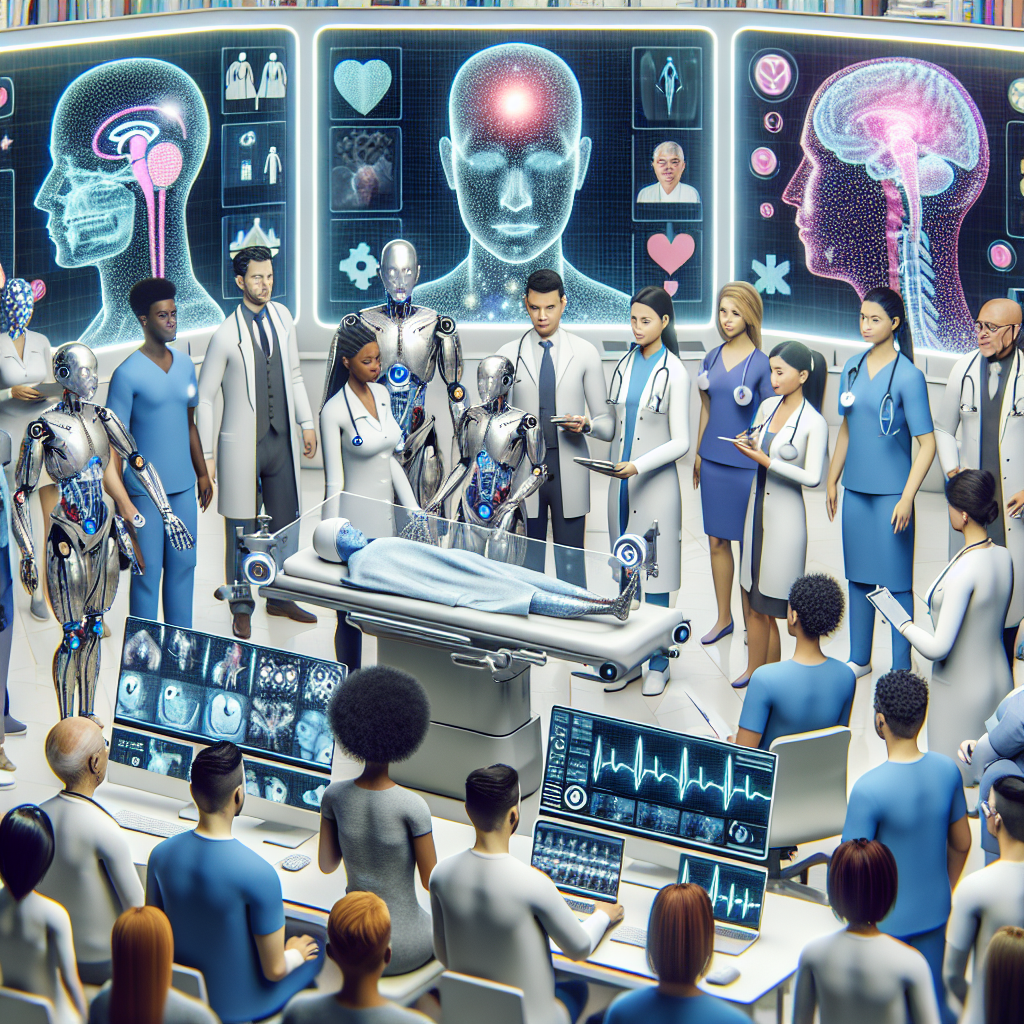Artificial Intelligence (AI) has rapidly transformed many industries, and healthcare is no exception. The use of AI in healthcare has the potential to revolutionize the way medical professionals diagnose, treat, and care for patients. From improving efficiency and accuracy to enabling personalized treatments, the benefits of AI in healthcare are vast and continue to grow. In this article, we will explore some of the key advantages of AI in healthcare and how it is shaping the future of medicine.
1. Improved Diagnostic Accuracy
One of the most significant benefits of AI in healthcare is its ability to improve diagnostic accuracy. AI algorithms can analyze vast amounts of data, such as medical images, lab results, and patient records, to identify patterns and make predictions. This can help medical professionals diagnose diseases more accurately and at an earlier stage, leading to better outcomes for patients. For example, AI-powered tools have been developed to assist radiologists in detecting and diagnosing conditions like cancer, heart disease, and neurological disorders with greater accuracy than traditional methods.
2. Personalized Treatment Plans
AI can also enable personalized treatment plans for patients based on their individual characteristics and medical history. By analyzing genetic data, medical records, and other relevant information, AI algorithms can identify the most effective treatments for each patient. This can lead to better outcomes, reduced side effects, and improved patient satisfaction. For example, AI can help oncologists determine the most effective cancer treatments based on a patient’s genetic profile, increasing the chances of successful treatment.
3. Increased Efficiency
AI can streamline many healthcare processes, leading to increased efficiency and cost savings. For example, AI-powered chatbots can assist patients with scheduling appointments, answering common questions, and providing personalized health advice. This can reduce the burden on healthcare providers and improve the overall patient experience. Additionally, AI can analyze large amounts of data to identify trends and patterns that can inform decision-making and improve operational efficiency in healthcare organizations.
4. Remote Monitoring and Telemedicine
AI technology can facilitate remote monitoring of patients and enable telemedicine services, allowing patients to receive care from anywhere. By using wearable devices and sensors, AI can track vital signs, monitor medication adherence, and alert healthcare providers to potential issues in real-time. This can help patients manage chronic conditions, reduce hospital readmissions, and improve overall health outcomes. Telemedicine services powered by AI can also provide access to specialist care for patients in remote or underserved areas, increasing access to healthcare services.
5. Drug Discovery and Development
AI has the potential to revolutionize the drug discovery and development process by accelerating the identification of new treatments and therapies. AI algorithms can analyze vast amounts of data, such as genetic information, clinical trial data, and scientific literature, to identify potential drug targets and predict the efficacy of new compounds. This can significantly reduce the time and cost of drug development, leading to faster access to new treatments for patients.
6. Enhanced Patient Engagement
AI-powered tools can help improve patient engagement and adherence to treatment plans by providing personalized health recommendations, reminders, and support. For example, AI-powered apps can track patients’ progress, provide feedback on their health goals, and offer motivational messages to keep them on track. This can lead to better patient outcomes and increased patient satisfaction.
7. Ethical and Legal Considerations
While the benefits of AI in healthcare are significant, there are also ethical and legal considerations that must be addressed. For example, concerns about patient privacy and data security have become increasingly important as AI technology becomes more prevalent in healthcare. It is essential for healthcare organizations to implement robust data protection measures and adhere to strict regulations to ensure patient data is kept secure and confidential.
FAQs:
1. How is AI used in healthcare?
AI is used in healthcare in various ways, including improving diagnostic accuracy, enabling personalized treatment plans, increasing efficiency, facilitating remote monitoring and telemedicine, accelerating drug discovery and development, enhancing patient engagement, and more.
2. What are the benefits of AI in healthcare?
Some of the key benefits of AI in healthcare include improved diagnostic accuracy, personalized treatment plans, increased efficiency, remote monitoring and telemedicine, drug discovery and development, enhanced patient engagement, and more.
3. What are the ethical and legal considerations of AI in healthcare?
Ethical and legal considerations of AI in healthcare include concerns about patient privacy and data security, ensuring patient data is kept secure and confidential, adhering to regulations and guidelines, and addressing potential biases in AI algorithms.
In conclusion, the benefits of AI in healthcare are vast and continue to grow as technology advances. From improving diagnostic accuracy and enabling personalized treatment plans to increasing efficiency and enhancing patient engagement, AI has the potential to revolutionize the way healthcare is delivered. However, it is essential for healthcare organizations to address ethical and legal considerations to ensure that AI technology is used responsibly and ethically. By harnessing the power of AI, the healthcare industry can improve patient outcomes, reduce costs, and ultimately provide better care for patients.

